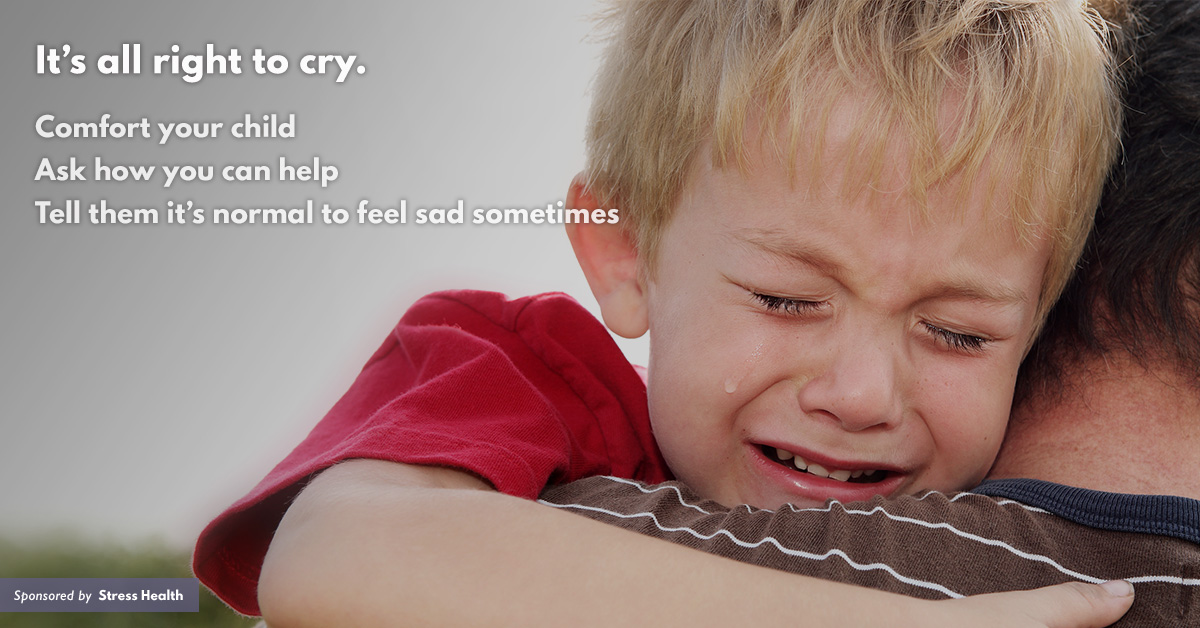Disclaimer: The following post is in partnership with Stress Health, an initiative of the Center for Youth Wellness. All opinions are my own.
Stress is a part of our everyday lives. Everyone experiences stress to to some degree. Whether it is stress from money, a job, divorce or health concerns, learning to manage stress is vital to our mental health.
TYPES OF STRESS
There are three types of stress that we experience in our lives. They are:
- Positive Stress, which we experience taking a test at school or sitting in traffic
- Tolerable Stress, which we feel when going through a natural disaster or being in a car accident
- Toxic Stress, the result of severe loss, emotional or physical abuse, and /or neglect
Toxic stress is is the most detrimental type of stress that we can face, and sadly, it begins in childhood. If left unaddressed, toxic stress has substantial effects on a child’s growth, development, immunity and even genes. Toxic stress increases the risk for depression, obesity, substance abuse, teen pregnancy and more.
The website Stress Health is a helpful resource to educate yourself about not only the different types of stress, but also what you can do about them.
Understanding that toxic stress doubles the lifetime risk of heart disease and cancer and can take 20 years off one’s life expectancy is powerful information.
Stress Health’s website not only helps to educate but also helps to people cope! With tips on mindfulness, exercise, sleep, nutrition, relationships, and leading a healthier life, Stress Health is a vital tool for anyone looking to better educate themselves.
Everyone deserves to live a life free of toxic stress, and it helps to understand how to recognize and help others that may be experiencing it.
THE IMPACT OF EXPERIENCES
ACE is a acronym for Adverse Childhood Experiences. To better understand if a child is at risk for toxic stress, clinicians will look at how many ACEs a child has been exposed to. Adverse childhood experiences are damaging life events that can be life-altering for a child.
You can take the ACEs QUIZ here to see how your child scores. Don’t forget, there is a lot you can do as a parent to help your child if they have already been exposed to many ACEs. You may be able to prevent or even reverse the damage.
As you review your or your child’s ACE score, please keep the following in mind:
- The ACE Quiz is based on the original ACE study. The 1998 landmark CDC-Kaiser Permanente Adverse Childhood Experiences (ACE) Study was one of the largest investigations of childhood abuse and neglect and later-life health and well-being.
- An ACE score is NOT an actual medical diagnosis. It is meant to help medical providers better understand a patient’s risk for the effect of a toxic stress response.
- Medical providers can use ACEs screening tools to identify children at risk for a toxic stress response
HOW TO HELP:
Start by taking the quiz above. You can take it for yourself or a child you know. Once you get your score, the website is extremely helpful in giving direction and tips on what to do next. Research shows that support and care can mitigate the impact of toxic stress in children and help them bounce back. Children are resilient!
Stay tuned for my next installment in the stress series I’ll be covering over the next few months. With the holiday season coming up (one of the most stressful times of the year for many), it’s important to have all the tools to help you cope with stress.
To learn more, visit Stress Health and begin your journey to cope better with stress today!




